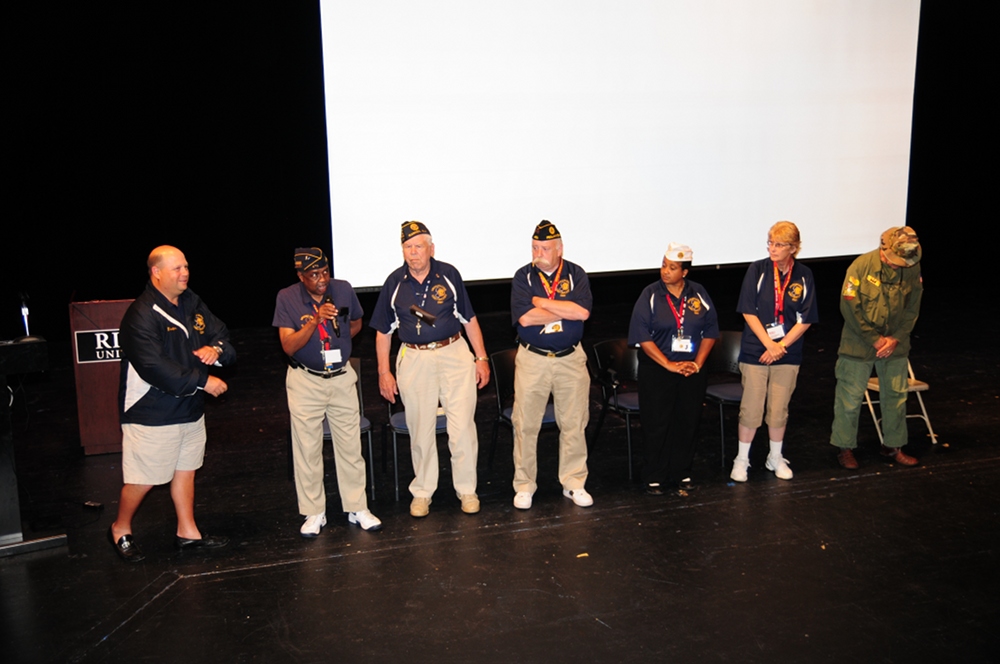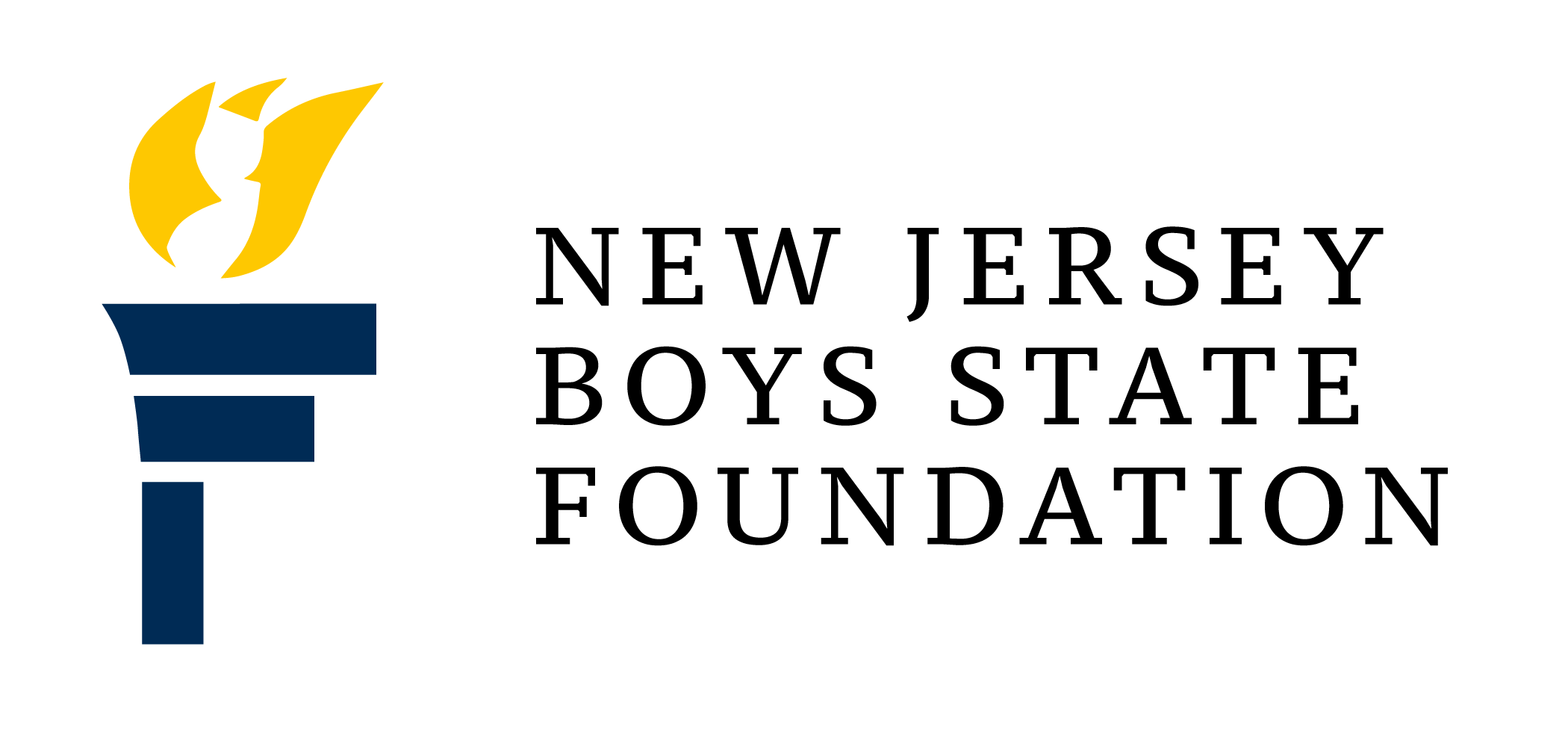News Archive

“When the past no longer illuminates the future, the spirit walks in darkness.” -Alexis de Tocqueville
Let’s get this out of the way quickly: ALJBS 2017 is no more capital-i Important! than ALJBS 2016 was.
There’s a lot of handwriting going on out there since November, a lot of breathless attempts to contextualize everything against the backdrop of the new President and his administration. American Legion Jersey Boys State is not excluded from these analyses. We’re a citizenship seminar. Our goal is to teach young men how to be discerning and active citizens and leaders. Those things are very close to the main issues people are concerned about. Of course we’d have to be thinking about why we matter more now, right?
Well…not really. ALJBS matters, and the ways that it matters are probably more evident now than they were a year ago. But what we teach is rooted in a long-term view, a historical perspective that allows us to properly understand context and react to it.
A quick aside, by way of introduction. I was an ALJBS statesman in 2003. That year was the second session after 9/11. As you might imagine, the atmosphere was incredibly patriotic. The bills that were introduced by the legislature were more concerned with national pride concerns like penalties for flag burning than social freedom issues like legalizing marijuana. Veterans were vigorously thanked and applauded. We were grappling with what it meant to be attacked and at war, and we, like the rest of the country, bonded deeply over that shared experience.
In the years that I’ve been back to ALJBS, I’ve watched the tenor and content of the conversations change dramatically. ALJBS is different than when I was a statesman. In a couple years, none of our delegates will have been alive when I was here. The seismic moments that define their existence are different than the ones I had. They are shaped by different things than I was.
It’s much easier to see this now, with the added benefit of fourteen years. Age offers a perspective that youth is not afforded. From this short jump forward, I can see some of the context for why our statesmen care about what they do.
If fourteen years makes a difference, what about seventy-one? ALJBS has been around a while, and the things we teach date back much, much further. That perspective offers us a chance to observe what’s happening and understand it better.
Alexis de Tocqueville stated that “America will cease to be great when she ceases to be good.” Good, for de Tocqueville, was morality, but it’s not hard to include citizenship there too. Like any democracy, America thrives if its citizens are able to clearly understand the challenges facing them and choose what’s best for the country. If its citizens don’t act in this way, things can go off the rails in a hurry thanks to an angry mob.
This is precisely where American Legion Jersey Boys State has an important role to play. For over seventy years, we’ve placed young men into a newly created democracy, separated them into cities and parties, and challenged them throughout the week to govern their democracy well. By the end of the week, they have a deeper understanding of how democracy works, what causes it to break, why it matters, and how they can participate in it. From one week at ALJBS, statesmen deepen their understanding of how the world works and what role they have in it.
This isn’t new, either. The core of this program has remained the same for years. The trappings have changed—look through any old yearbooks or newspapers and you’ll discover differences—but the basic thrust of the program has been stable. We still teach citizenship using a political system, seminars, and speeches from notable guests. We’re not changing any of that this year (although the roster of speakers might be the best we’ve ever had).
That’s not just a statement of identity; it’s a statement of purpose. ALJBS takes the long view. We will not have a seminar this year in civil disobedience or “how to resist.” We will, however, teach the principles of democracy that the nation was founded on. We will force statesmen to wrestle with what it means to be a citizen and to participate in a democratic republic. At the end of the week, they’ll go home, taking what they’ve learned to their families, schools, and communities. As events happen, they’ll have more of a framework to understand what’s going on. Hopefully, the things they’ve learned will take root and flourish.
Governing and politics are complex, challenging things. They require skill and care that has been honed by theory, thought, and experience. We can’t teach all of that this week at ALJBS. But we can teach a lot of it. We can place individuals in a system where everyone starts from an even playing field to see what true democracy looks like. We can prompt people to choose a form of government to best solve the issues they face. We can provide an environment where people learn the art of debate and persuasion. We can bring in successful leaders and politicians to speak to statesmen, communicating that yes, your leaders care about you—and you could be up there some day.
ALJBS is an attempt to keep democracy alive by training the next generation. We want a strong nation. We believe that this takes hard work, work that may never bear fruit or only bears it away from our eyes.
But we believe it is right. We do not choose to educate because it is easy. We choose to educate because it is right.
If that sounds familiar, it should. It’s a nod to President Kennedy’s “We choose to go to the moon” speech. It’s a famous speech, one worth reading. The Space Race inspired millions and created jobs and technology that have blessed countless lives. It was the aspirational-yet-practical thing done perfectly. Kennedy didn’t live to see the moon landing, but the speech provided a mark for people to aim at. Kennedy’s speeches often did this. In his inaugural address, Kennedy declared, “let every nation know, whether it wishes us well or ill, that we shall pay any price, bear any burden, meet any hardship, support any friend, oppose any foe to assure the survival and the success of liberty…This much we pledge—and more.”
Kennedy, like Churchill, like Lincoln, like Washington, knew that liberty comes at a cost, and that the cost must be paid. This week, our statesmen will learn what that is. They’ll meet the veterans who served to protect it. They’ll participate in a tiring week, learning what it’s like to have many responsibilities and calls for your attention. They’ll discover why it’s important to have an understanding of how government works, how the branches are divided, and what properly running a government looks like. All this will prepare them to be better citizens when they go home. They will have the perspective they need.
How do we know this? Because we’ve done it for 71 years. We’ve seen people’s lives change from their week at Boys State. “A week that shapes the future” is rooted in history, not in a popularity contest. ALJBS 72 will change the lives of all who come. It will be a wild, rewarding ride.
Won’t you join us?


